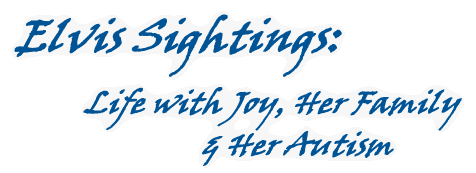Time is flying again. Today's the day I get another chance to be social with my new Partners in Policymaking friends in the capital city (in the shadow of the Capitol), where last month we learned about a simply capital concept -- applying the idea of social capital to our thinking about disabilities.
But first, I still haven't gone into detail about what Wisconsin Partners in Policymaking is. This is Wisconsin's first go at a program that's been around in other states for over 20 years: a leadership training for self-advocates and family members regarding public policy in developmental disabilities. There's a select group of thirty of us from across the state, with 10 self-advocates and 20 family members (mostly parents but a few sibs as well), meeting one weekend per month across six months. We're sponsored by the Wisconsin Board for People with Developmental Disabilities and several other organizations besides.
It's a power-packed group of folks, many of whom have already held various leadership positions and done great advocacy work on their own behalf and on behalf of their loved ones. The point now is to take it to the next level, and start to build a statewide grassroots advocacy network.
As with the LEND program I did two years ago, there's way too much to be able to share it all. I'm going to have to pick and choose what to pass along. From the January meeting, I've already referred to a couple of the readings in my last post.
So I'll just highlight the "social capital" presentation, because I think it's important.
Social capital has to do with the give-and-take, the mutual relationships between people that make society what it is. As a research concept, there are a couple of competing definitions. The World Bank definition, not surprisingly, refers to economic prosperity. Robert Putnam, of Bowling Alone fame, defined social capital as "features of social organization such as networks, norms, and social trust that facilitate coordination and cooperation for mutual benefit."
The point of the Partners presentation -- people with disabilities also have social capital, need social capital, can build social capital. Mutual relationships. People with disabilities aren't just the recipients; social capital is a back-and-forth thing.
I like this a whole lot better as a concept than the natural supports construct I wrote about from LEND a couple of years ago.
Not that "natural supports" isn't on to something important: it points out that all-too-often we focus way too much on the paid personnel who support and accompany people with disabilities, to the exclusion of the more natural web of support that a community provides. Extended family, classmates, neighbors, fellow church-members, there's a whole world of people out there who can provide support in a more natural, normal, it-takes-a-village-to-live-a-good-life kind of way.
The one thing that the concept of natural supports lacks (well, besides an immediately-understandable name) is the element of mutuality. The nomenclature tends to focus the attention on the caregivers/supporters rather than acknowledging that people with disabilities are participants in the relationships, just like people without disabilities.
So, social capital. Give-and-take relationships, a network to cultivate, a concept that applies to everybody, not just people with disabilities.
It strikes me that social capital also applies to some extent in paid relationships. I was on to that back in 2008, when I blogged about how I wanted our house to be a favorite place for the in-home therapists to come! Little gifts of produce from the garden, being organized and courteous and available, making sure the house wasn't too disgustingly grungy. Building social capital -- and we end up with employees who interact with us on a friendship level as well as professional, and remain in contact after the professional relationship ends.
For Joy, she doesn't know she's doing it, but she's been building social capital with smiles, with bye-bye waves, with hugs and requests for attention and just being willing to share her space. Someday I hope she'll do it via conversation -- maybe even blogging?
A few caveats: Autism has its own special layer of challenge when it comes to social capital -- the whole "social deficit" part of the equation, in all its many challenging aspects. I also have some hesitancy about the way "social capital" may tend to define as "poor" those who prefer a less-socially-interactive existence just in general.
Still, I think as a concept "social capital" does a whole lot better than "natural supports" in contributing to what it means to envision people with disabilities living lives of inclusion in mutually-supportive communities.
Back to blogging as social capital -- it occurs to me that a year ago I was doing much better at the give-and-take of social-capital building, the commenting back and forth on other blogs that led to such awesome blog-conversations here. So out of the social-capital loop am I at the moment, in fact, that I've failed to acknowledge receiving an award way back on my New Year's Satisfaction post, where Briane P over at Thinking the Lions bestowed upon me the Smart Cookie award:
Fortunately in this case I've left myself an out by my previous declaration way back in 2008 that I don't really "do" awards. Unless I feel like it. With this one I'm supposed to thank the giver (Thanks, Briane!), link back to him in my post (here ya go), list four little-known facts (oh well), and link to other Smart Cookies (I guess that would build social capital, eh? Oh well, again.)
Anyway, back to the Capitol environs for me, for another heapin' helping of Partners in Policymaking. Stay tuned!

